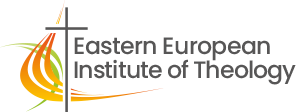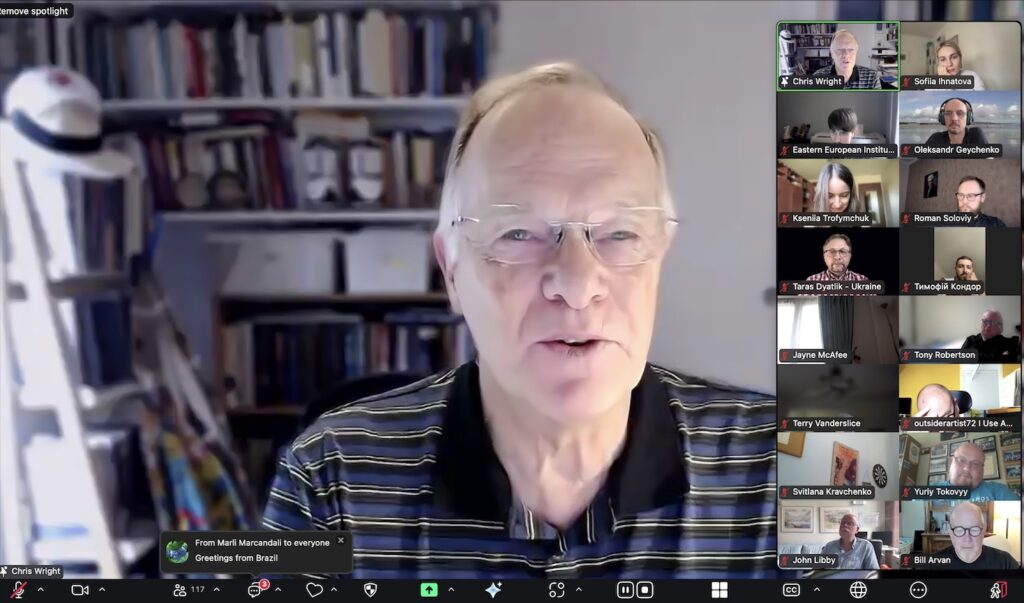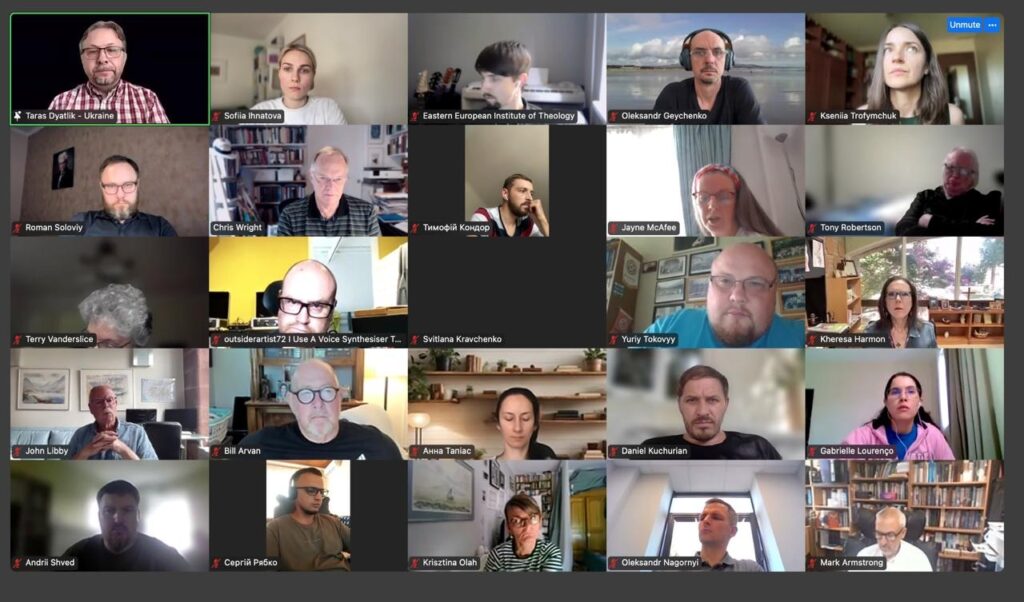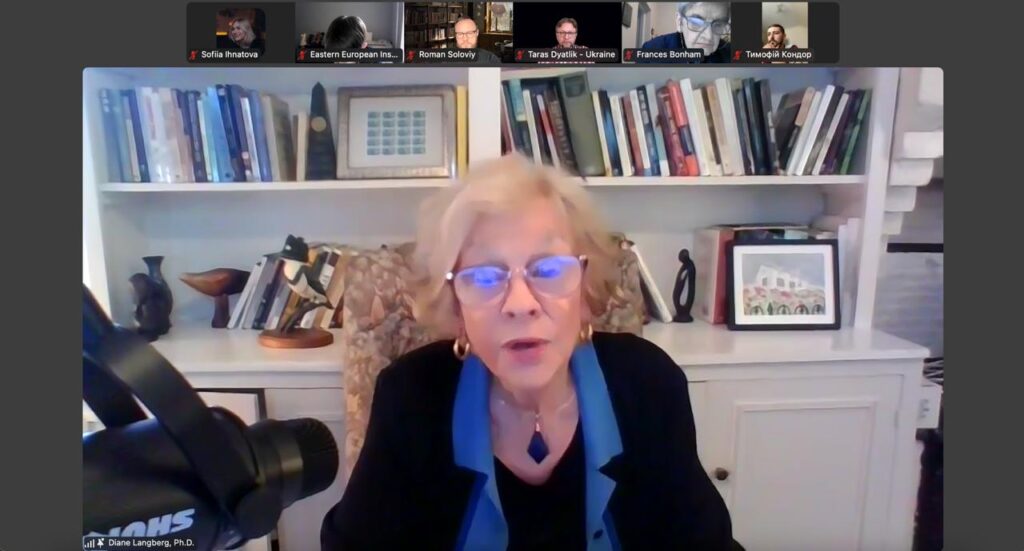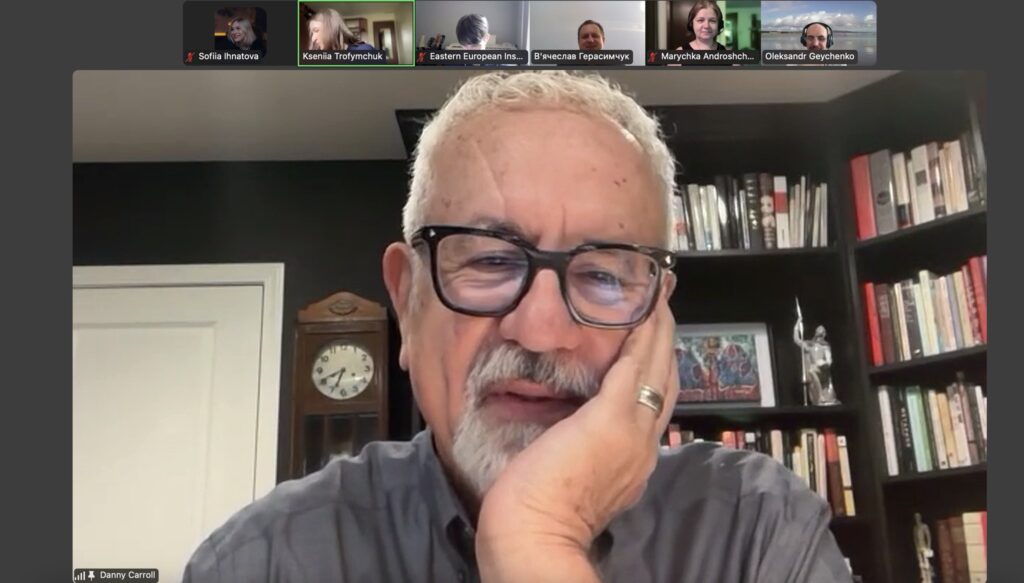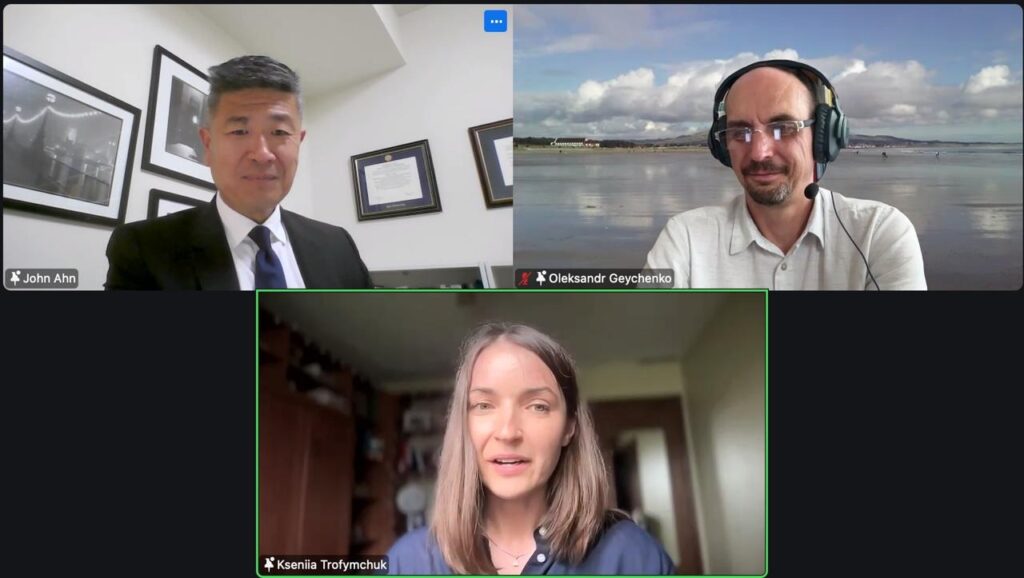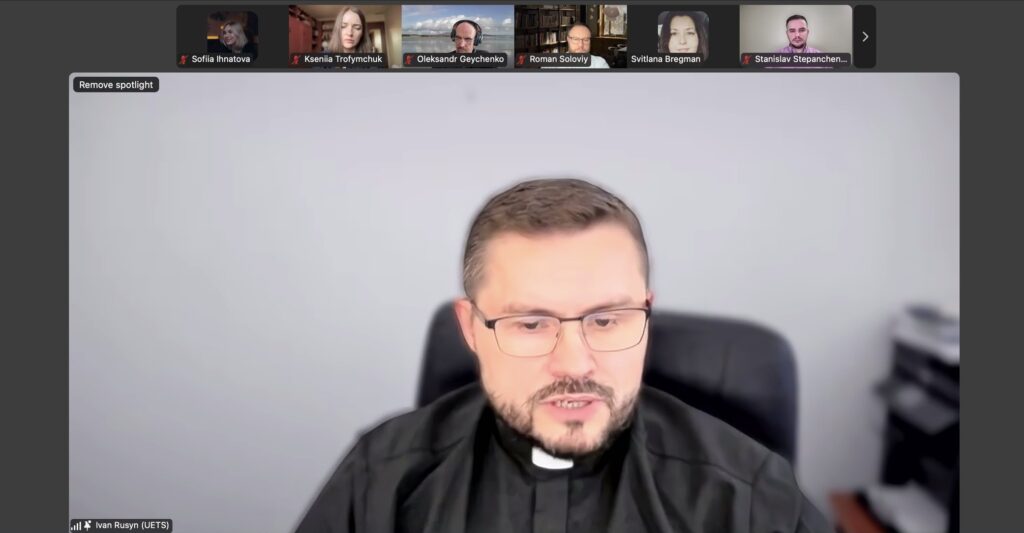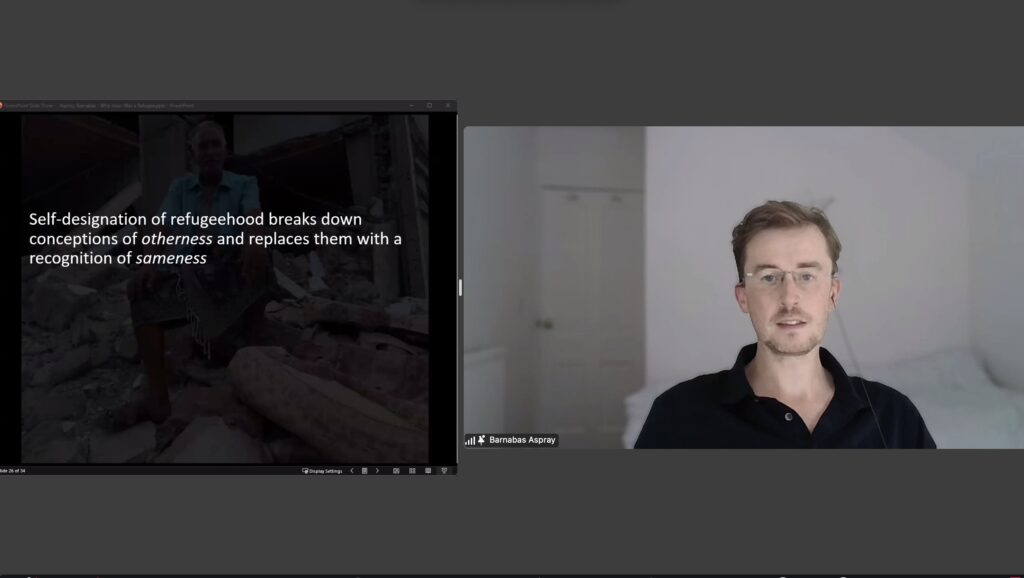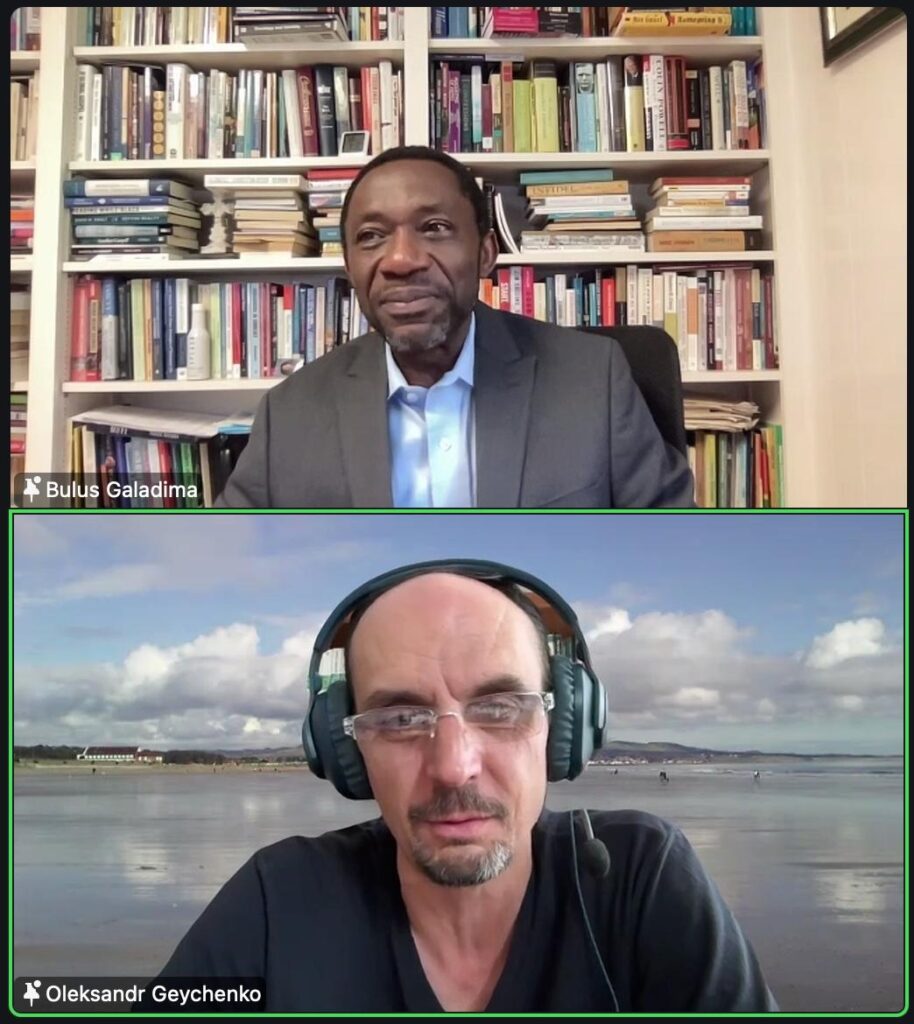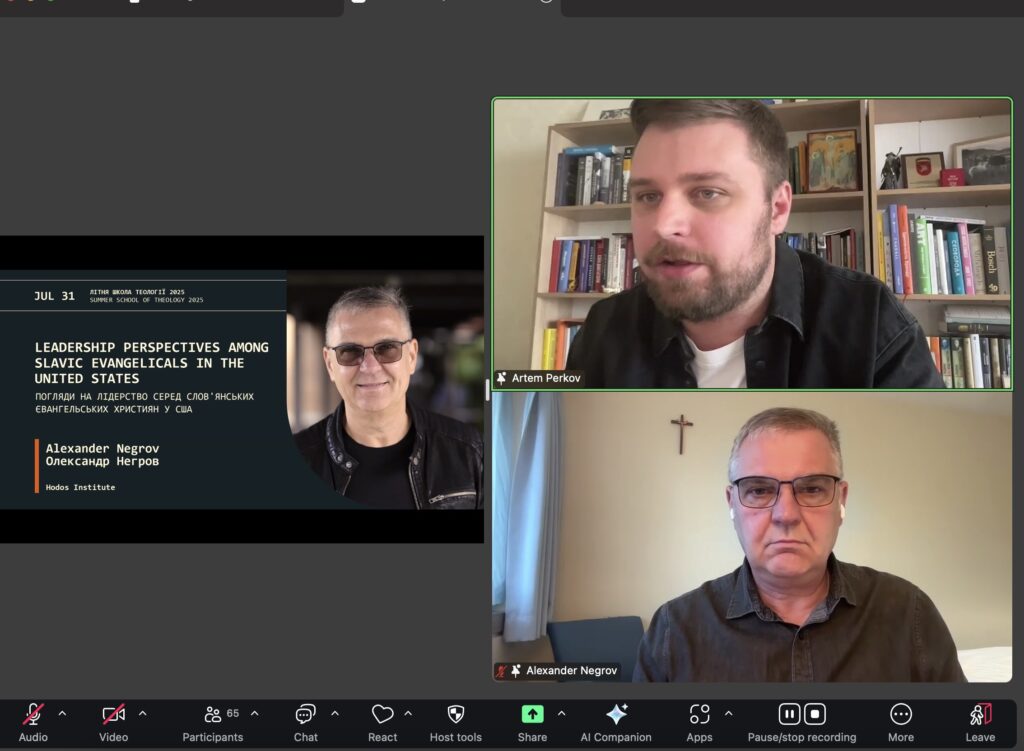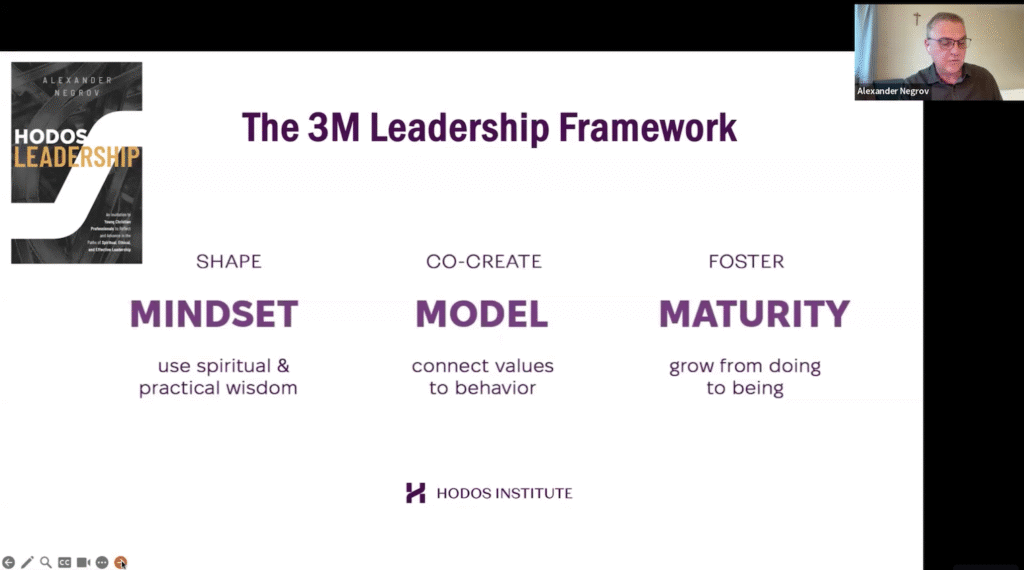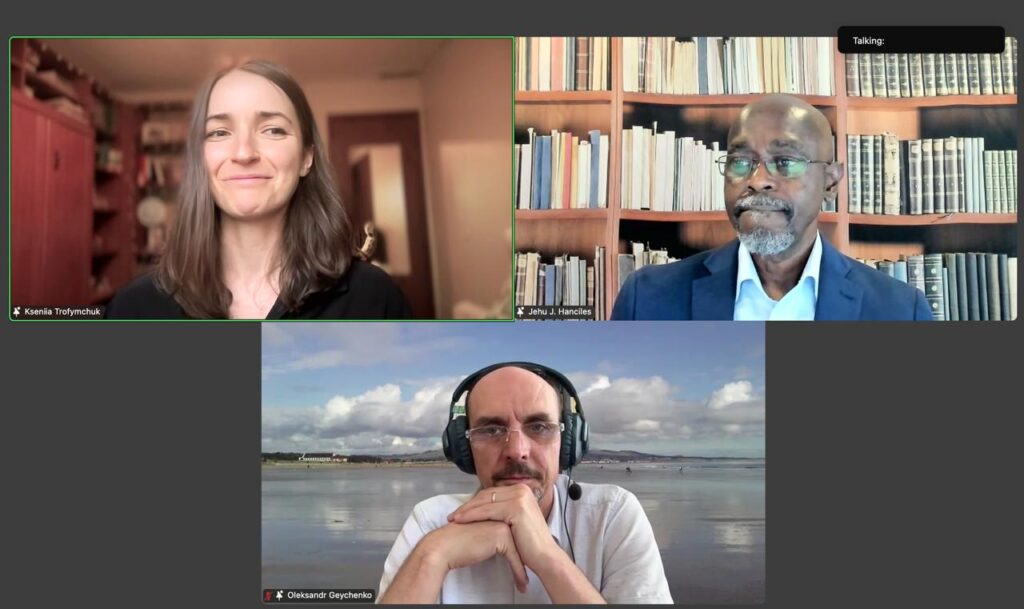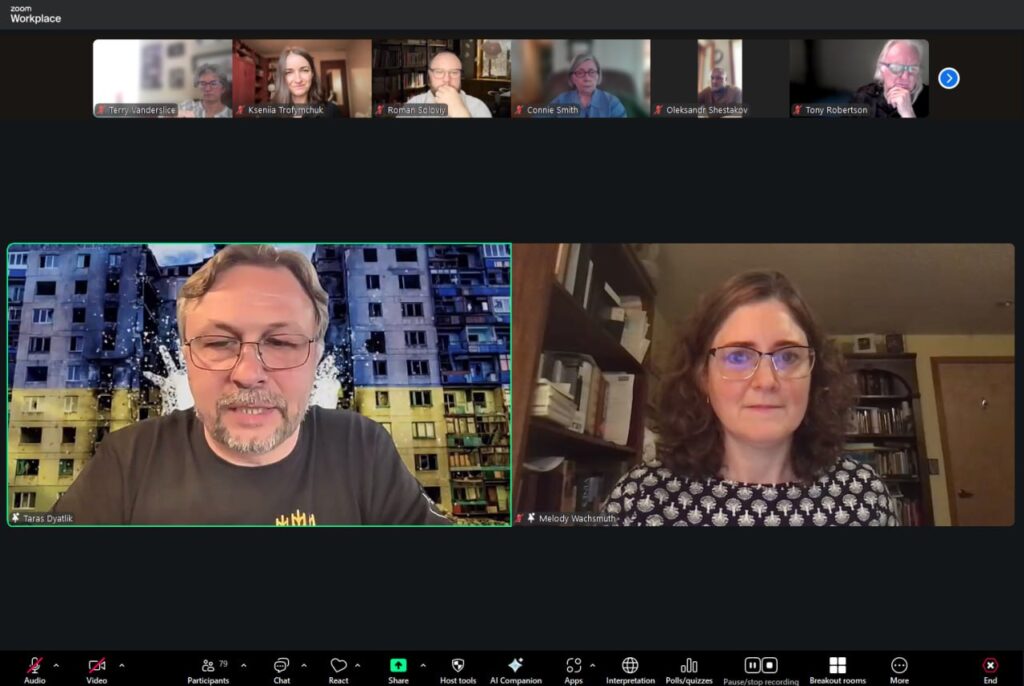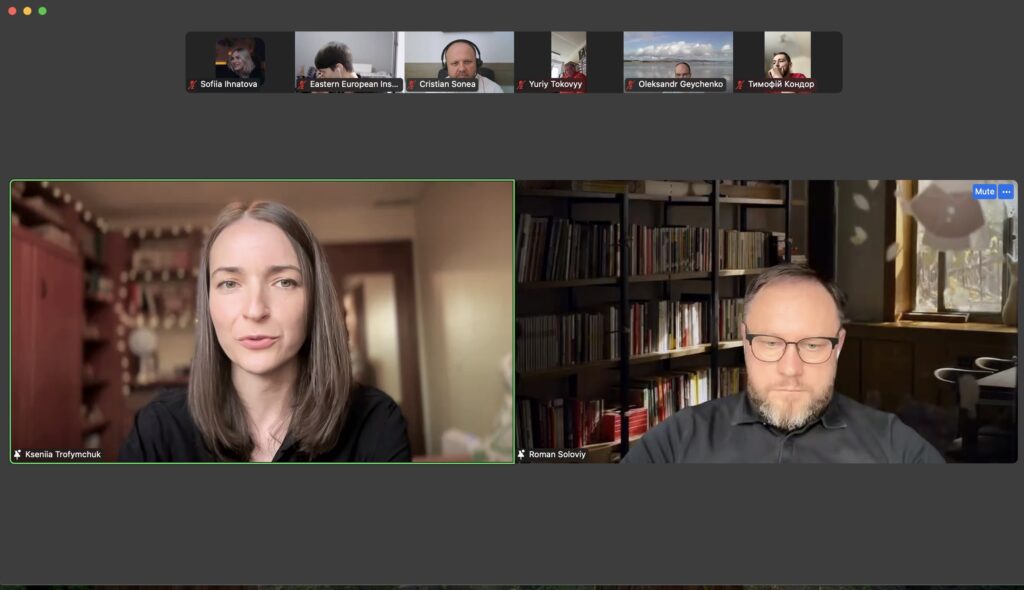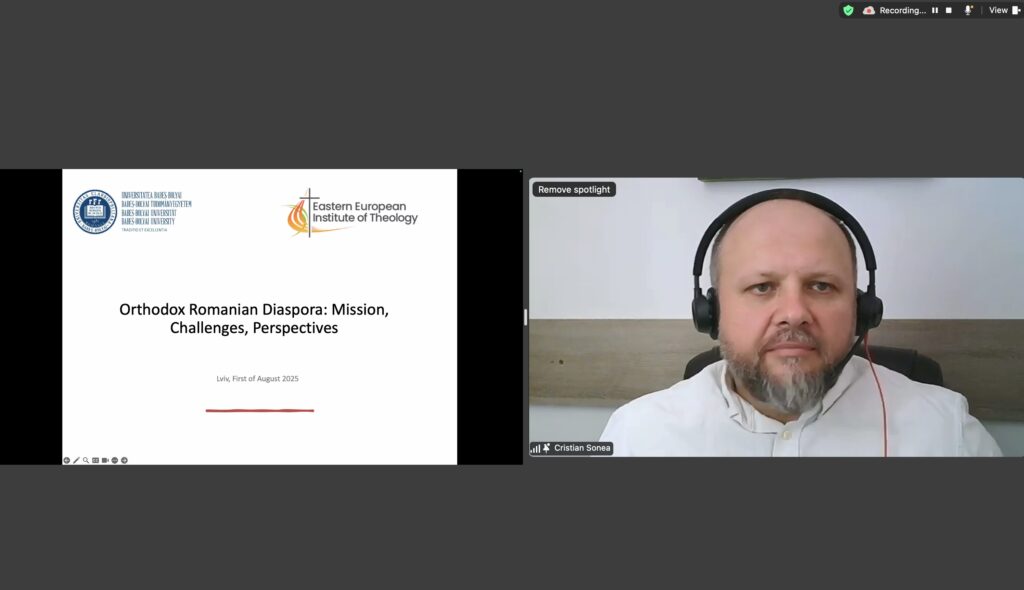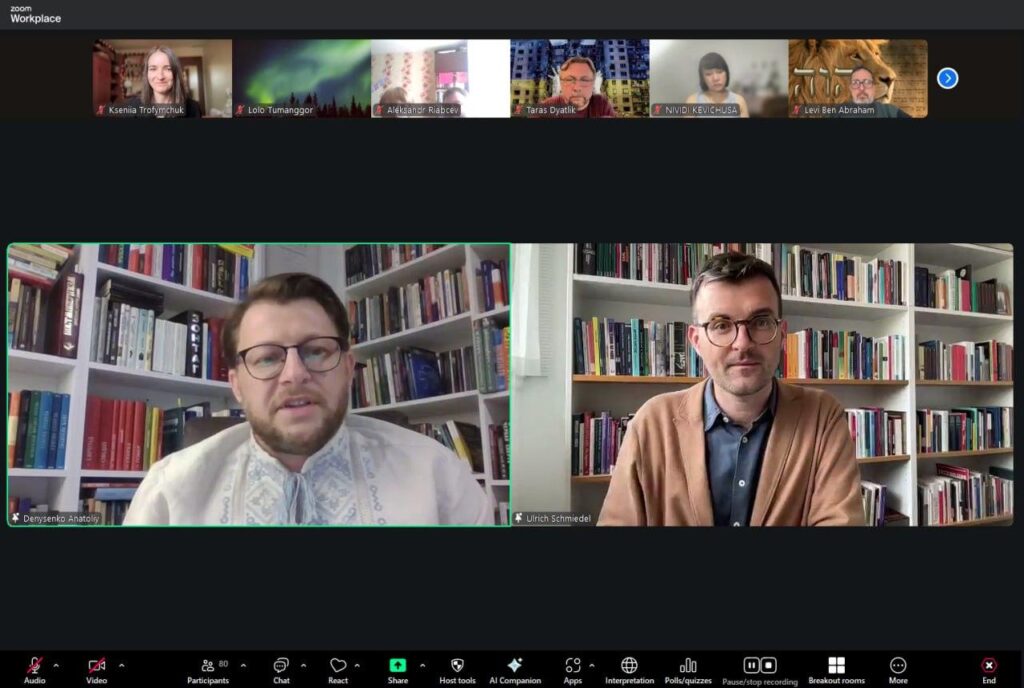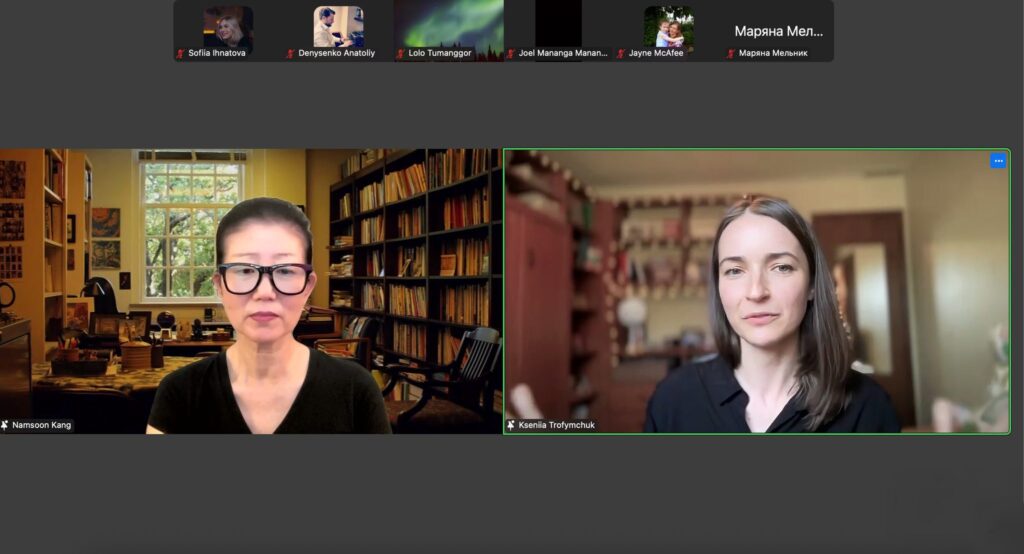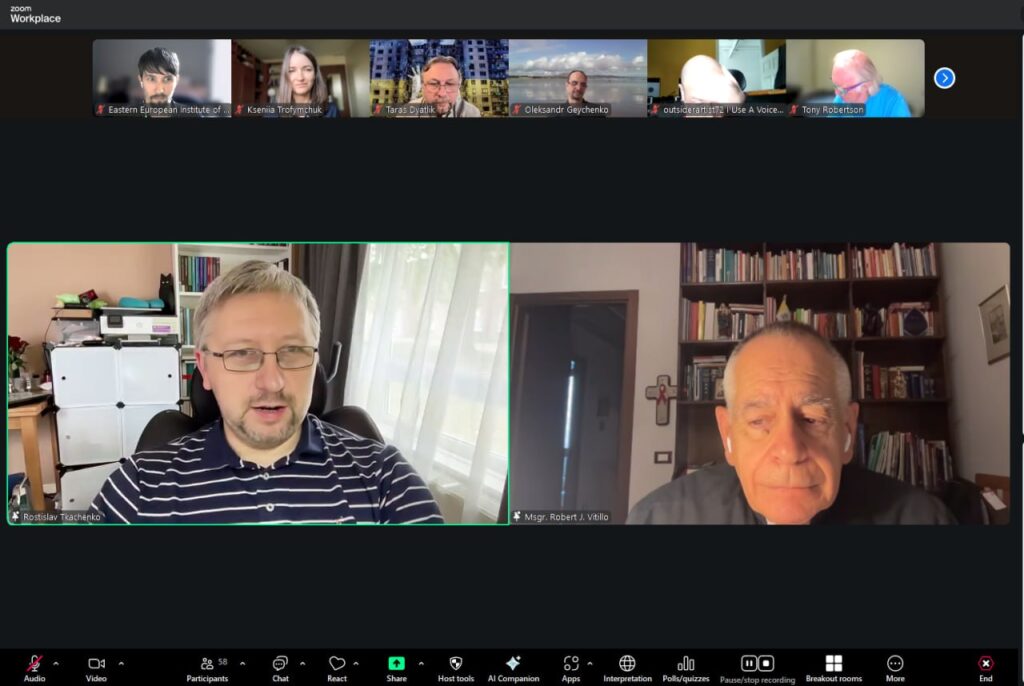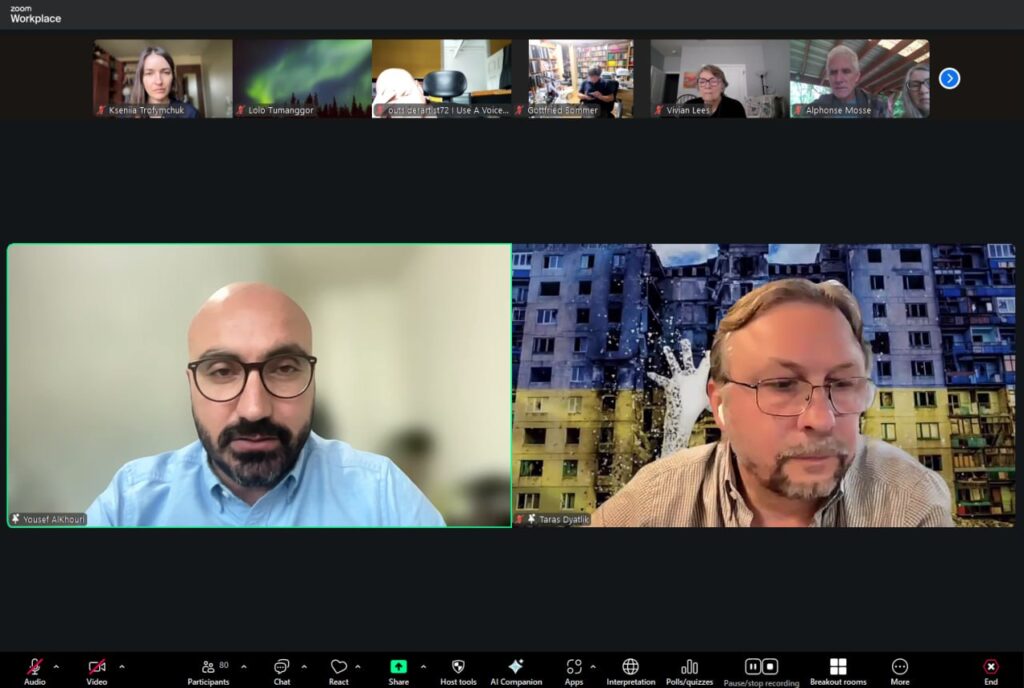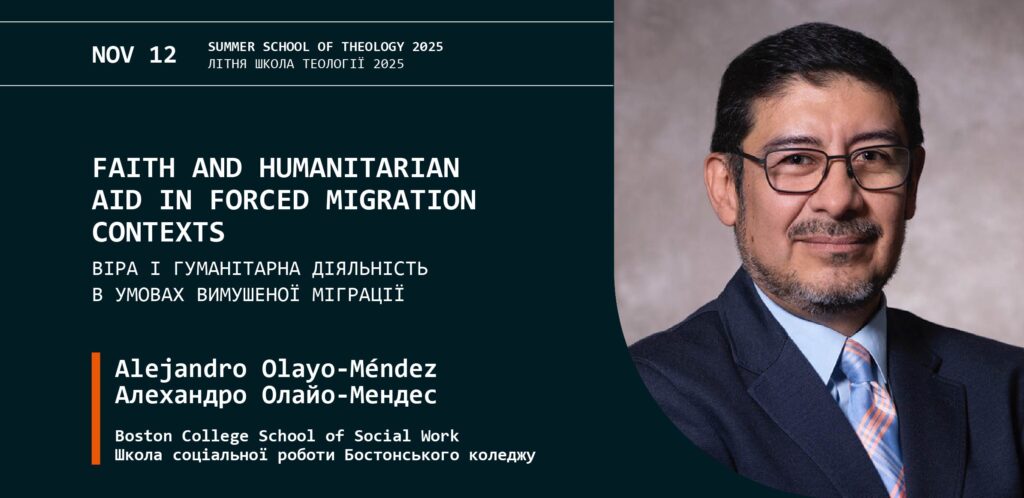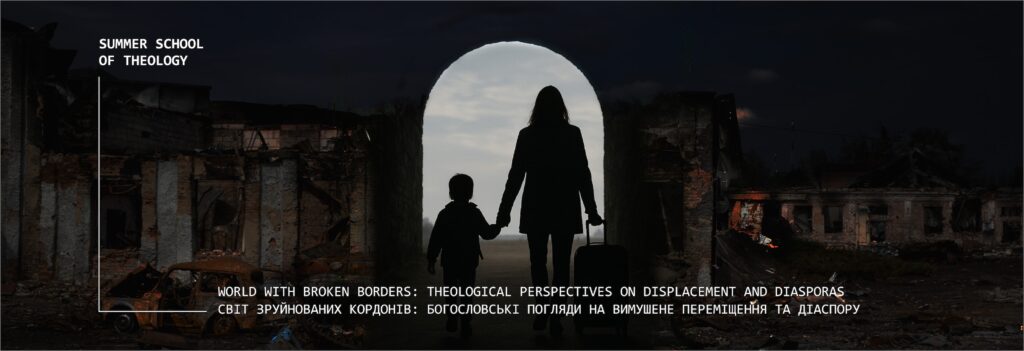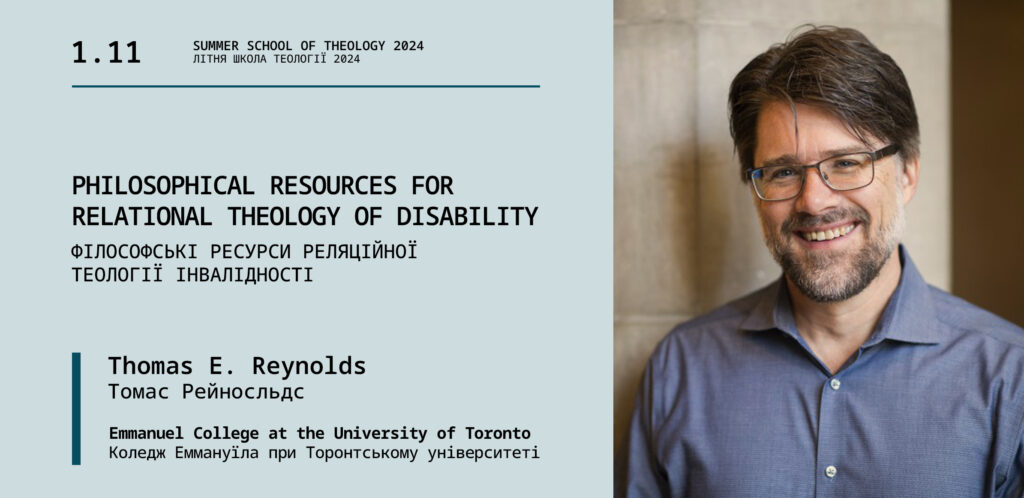Participants Representing 50 Countries Convened Virtually at the 2025 Summer School of Theology to Explore Migration Theology
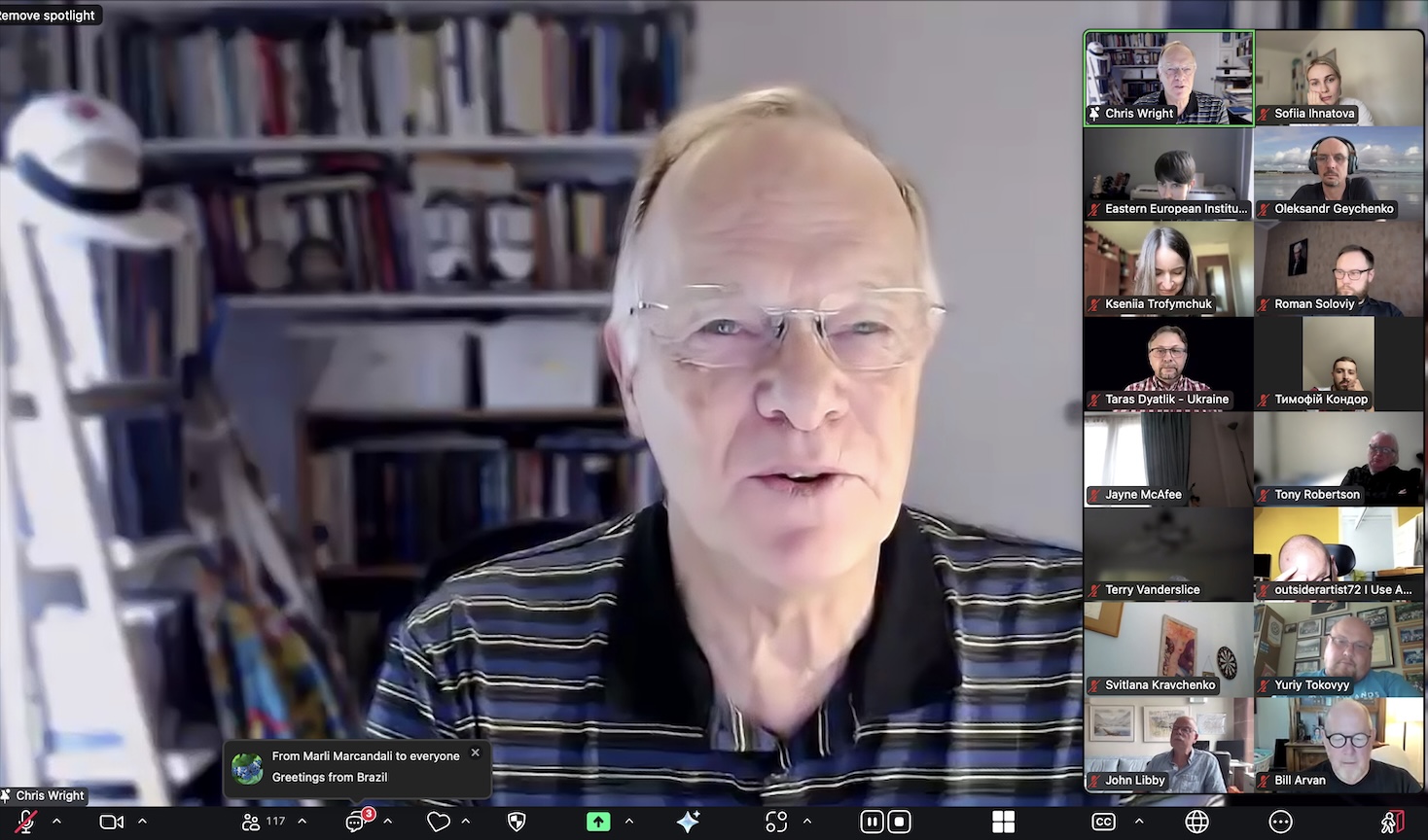
Introduction: When Displacement and Mission Dance Together
The Eastern European Institute of Theology's 2025 Summer School brought together over 300 participants – including scholars, practitioners, and theologians – from more than 50 countries to grapple with one of the most pressing theological challenges of our time: understanding displacement and diaspora within the context of God’s mission.
Meeting virtually from July 28 to August 2, participants explored the theme "World with Broken Borders: Theological Perspectives on Displacement and Diasporas," examining how forced migration shapes both human experience and the understanding of divine revelation.
The numbers alone tell a staggering story. In our fractured world, 122.1 million people have been forcibly displaced from their homes – a population that would constitute the twelfth-largest nation on Earth. Among them, 42.7 million are refugees who have crossed international borders, fleeing conflicts in Sudan, Ukraine, Syria, and other war-torn regions. An additional 73.5 million remain internally displaced within their own countries – homeless in their homeland, exiled within their borders. Meanwhile, 8.4 million individuals are awaiting asylum decisions that will determine their access to sanctuary or prolong their uncertainty.
Beyond forced displacement, 304 million people around the world live as international migrants – many driven by economic desperation. This represents the largest voluntary movement in human history, though it is a form of voluntariness that often resembles the desperation of drowning people reaching for lifelines.
Climate change adds yet another dimension to this existential exodus. In 2023 alone, floods, storms, and other climate-related disasters displaced 26.4 million people — as if creation itself were rejecting its inhabitants. Scientists project that by 2050, up to 1.2 billion people could be forced to relocate due to climate-related disasters, as the Earth groaning under the weight of humanity's impact.
But as participants discovered throughout the week, displacement is not foreign to the narrative of faith; it is woven into its very fabric. From humanity’s first exile – when Adam and Eve were cast out of Eden – to God’s call to Abraham to "leave your country, your people and your father's household," to Christ's own refugee experience as an infant carried by frightened parents into Egyptian exile, displacement emerges as central to salvation history.
The Summer School engaged this profound theological reality: that in displacement – perhaps especially in displacement – God reveals Himself, transforming what appears to be humanity's greatest crisis into opportunities for divine encounter.
Lecture Overview: A Journey Through Scripture, History, and Contemporary Crisis
The six-day program featured fifteen distinguished speakers who guided participants on a remarkable theological journey spanning continents and different Christian traditions. Each presentation built upon the insights of those before it while also breaking new ground, contributing to a comprehensive exploration of displacement's role within God's mission.
Christopher J. H. Wright laid the foundation by examining Old Testament imperatives regarding migrants and foreigners. His exploration of the ger (stranger/sojourner) laws in Deuteronomy demonstrated how God's people must remember their own Egyptian displacement and to extend radical hospitality to others. This scriptural mandate served as an anchor for the week’s theological reflections.
Building on this biblical foundation, Diane Langberg drew on five decades of experience in trauma therapy to address the challenge of living with war while holding onto hope. Her presentation bridged psychological resilience and theological hope, offering insights particularly relevant to the Ukrainian context and other global conflict zones. Participants witnessed a compelling intersection of clinical expertise and pastoral wisdom.
M. Daniel Carroll R. illuminated the centrality of migration throughout Scripture, tracing a theological arc from Abraham’s call to leave Ur, through Israel’s exile, to the Great Commission's diaspora evangelism. His presentation reframed migration not as mere disruption but as part of divine design, demonstrating how human mobility actively shapes the unfolding of salvation history.
This biblical-historical foundation enabled John Ahnto bridge ancient and contemporary experiences by connecting the Babylonian forced migrations of the 6th century BCE with modern forms of displacement. He introduced generational consciousness theory, which explains how first, 1.5, second, and third generations process exile, lament, and the concept of home in distinct ways. His insights offered vital guidance for ministries serving displaced populations.
Ivan Rusyn brought these theoretical frameworks into sharp contemporary focus through his examination of Ukrainian realities. His exploration of Missio Dei Ivan Rusyn brought these theoretical frameworks into sharp contemporary focus through his examination of Ukrainian realities. His exploration of Missio Dei and diaspora mission revealed how the displacement of Ukrainians since 2014 and 2022 has created new missiological opportunities across Europe, demonstrating theology's immediate relevance to ongoing crises.
The theological center of the week emerged through Barnabas Aspray's exploration of welcoming strangers through the lens of Christ's refugee experience in Matthew chapter 2. He argued that Jesus' displacement to Egypt both recapitulates Israel's exile and Adam's expulsion, provided the Christological framework for the entire week’s theological dialogue. Aspray proposed a profound thesis: the church, as a community of aliens and strangers, is called to welcome strangers just as God welcomes us in Christ.
Bulus Galadima expanded participants’ geographical and theological horizons through African reflections on displacement and divine opportunity. Drawing on Nigerian and broader West African experiences of conflict-induced migration, he demonstrated how African concepts of hospitality and resilience offer rich missiological insights often overlooked in Western theology.
Alexander Negrov shifted the focus to practical ministry formation by presenting empirical research on Slavic evangelical leadership development within diaspora contexts across the United States. His examination of the intersection between theology, self-discipline, and spiritual maturity in post-Soviet immigrant communities revealed key insights for effective diaspora ministry.
Jehu J. Hanciles challenged conventional mission paradigms by asserting that migrant movements, rather than institutional missions, drive Christianity’s contemporary global expansion. Drawing on Sierra Leonean and broader African diaspora experiences, he repositioned migration as central to Christianity’s growth beyond traditional Western imperial frameworks.
The week's most uncomfortable truths emerged through Melody Wachsmuth's examination of Roma experiences during European wars. Her presentation exposed the hierarchies of hospitality that result in vastly different treatment for displaced populations, compelling participants to confront selective compassion and racialized responses to displacement.
Cristian S. Sonea offered practical insights from Orthodox Romanian diaspora mission across Western Europe, exploring how labor migration shapes both personal and communal identity. His analysis of the evolution from sporadic "on-call" ministry to consistent "proximity" pastoral presence provided valuable models for sustained diaspora engagement.
The interfaith dimension came into focus as Ulrich Schmiedel presented findings from multi-faith refugee relief fieldwork across European borders. His research demonstrated how religious diversity can strengthen democratic vitality, showcasing effective interfaith cooperation in crisis response and challenging claims that religious diversity undermines democratic institutions.
Philosophical depth was brought by Namsoon Kang, through her theopolitical reflections on cosmopolitan hospitality. Grounding her analysis in the foundational displacement experiences of the Abrahamic traditions, she articulated frameworks for welcoming “everyone, everywhere,” encouraging participants to embrace more expansive visions of Christian hospitality.
Robert J. Vitillo showcased institutional responses by presenting Catholic approaches to displaced persons. His exploration of theological foundations in Catholic social teaching, alongside the Church’s global pastoral care programs, illustrated how systematic faith-based efforts can effectively complement grassroots hospitality initiatives.
The Summer School concluded with Yousef AlKhouri’s historical analysis of Palestinian Christians in Gaza, tracing their continuous witness through nearly two millennia of imperial dominations, including Byzantine, Islamic, Crusader, Ottoman, British, and contemporary eras. He emphasized how the ongoing crisis since 2023 poses an existential threat to this ancient community. His presentation raised urgent theological questions about the weaponization of Scripture in colonial contexts, the tension between rootedness and displacement, and the Global Church’s responsibility to stand in solidarity with indigenous Christian communities who choose to remain with their suffering people rather than seek safety elsewhere.
Conclusion: Transformed by the Theology of the Displaced
As the Summer School drew to a close, participants were confronted with more than mere academic insights – they encountered a call to response. The testimonies they had heard, the biblical patterns they had traced, and the theological frameworks they had engaged with fostered an irreversible awareness. The strangers discussed throughout the week ceased to be abstract concepts; they became living, suffering, and hoping individuals whose stories lodged like splinters in the hearts of the participants.
The Summer School revealed a fundamental theological truth that could no longer be ignored: Christ is invariably displaced, continually manifesting in the most inconvenient places. Faith itself emerges as a form of exile, while discipleship is understood as perpetual migration toward the Kingdom – already present amid human brokenness and vulnerability, yet not fully realized. The broken borders – both external and internal – that participants examined throughout the week exposed the illusion of settled theologies and the complacency of comfortable Christianity.
Yet the Summer School neither sought pity nor extended mere charity. Rather, it posed an ontological question that lies at the core of Christian identity: What does it mean to be Christian when Christianity’s very essence is displacement? Will believers embrace the essential homelessness of Christian existence in a world fractured by sin and death, or will they persist in the futile efforts to domesticate the Gospel within ethno-political frameworks for their own convenience?
These questions haunted the final sessions: What message will the Church offer to systems that perpetuate displacement? For how long can communities function as sanctuaries for the displaced? And how will believers respond to Christ’s presence among the displaced – with faith, wisdom, and sacrificial love?
The School concluded with a sobering recognition: while the formal Summer School sessions had ended, participants’ education in crisis theologies and costly love had only just begun. They would no longer be able to remain unaware of what displacement feels like when it has a face, a name, and a story. Nor could they unhear the voices that revealed an essential truth – that our broken borders expose the illusion of settled theologies, while simultaneously unveiling our own existential condition as we seek the Kingdom of God here and now.
The Holy Spirit tears down the veil between theological academic discourse and lived reality in war-affected countries. We stand exposed before a naked truth: faith here and now is already exile, discipleship here and now is perpetual migration toward the Kingdom already among our brokenness, yet not fully realized.
The Eastern European Institute of Theology’s 2025 Summer School endeavored to achieve its ambitious goal: to leave participants with fundamentally transformed perspectives on displacement – not as an interruption of God’s mission, but as central to it.
Armed with biblical foundations, theological frameworks, and practical insights, we hope they were equipped to engage one of our era’s defining challenges through the lenses of faith, hope, and sacrificial love. Though the Summer School of Theology has ended, our collective journey toward just peace, radical hospitality, and the fullness of God’s Kingdom continues.
The Eastern European Institute of Theology gratefully acknowledges the financial support of Open Eyes and DniproHope Mission for the 2025 project. We also extend our sincere thanks to ScholarLeaders, Langham Publishing, and Mesa Global for their invaluable organizational support.
